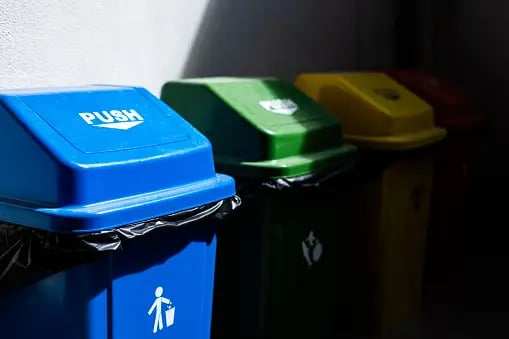As global attention on climate change intensifies, the regulatory landscape for sustainability reporting is evolving rapidly. Governments, investors, and industry groups are introducing new standards to ensure greater transparency and accountability, leaving sustainability managers with a pressing question: how can we keep up?
For those in the oil and gas sector, navigating these requirements can feel especially daunting. This blog breaks down the essentials of emerging sustainability regulations and what they mean for your business.
Why Sustainability Reporting Matters Now More Than Ever
Sustainability reporting is no longer just a best practice; it’s becoming a legal obligation. Regulatory bodies worldwide are implementing frameworks to standardise how companies disclose sustainabilty data. These disclosures are crucial for:
- Building Stakeholder Trust: Transparent reporting reassures investors, partners, and communities of your commitment to responsible operations.
- Securing Investment: Sustainability performance is increasingly tied to access to funding and partnerships.
- Future-proofing Your Business: Proactively addressing sustainability risks helps organisations remain resilient in a rapidly changing market.
Emerging Regulatory Frameworks to Watch
- Corporate Sustainability Reporting Directive (CSRD):
Starting in 2024, the European Union requires companies operating within its jurisdiction to meet comprehensive reporting standards. The CSRD mandates double materiality, focusing on the impacts of sustainability issues on your business and vice versa.
- SEC Climate Disclosure Rules:
The U.S. Securities and Exchange Commission is finalising requirements for publicly traded companies to report on greenhouse gas (GHG) emissions and climate-related risks. These rules will likely impact any oil and gas companies with U.S. operations or investors.
- ISSB Standards:
The International Sustainability Standards Board (ISSB) aims to harmonise global sustainability reporting. Its initial standards focus on climate-related disclosures, aligning with frameworks like the Task Force on Climate-related Financial Disclosures (TCFD).
- Country-Specific Requirements:
Many countries, including Canada, the UK, and Australia, are implementing their own sustainability regulations, often aligned with global frameworks but with unique local priorities.
What These Regulations Mean for Oil and Gas Professionals
Sustainability managers in oil and gas face distinct challenges when adapting to these frameworks, including:
- Scope 3 Emissions Reporting: Accounting for emissions across the entire supply chain requires coordination and advanced data collection methods.
- Data Consistency: Aligning reporting standards across jurisdictions while maintaining accuracy and transparency is a complex task.
- Evolving Expectations: With frameworks constantly updated, staying informed is critical to compliance.
How to Start Preparing
To stay ahead, sustainability managers should focus on:
- Understanding Key Frameworks: Familiarise yourself with major standards like CSRD, TCFD, and ISSB. Identify which regulations apply to your organisation based on location and operations.
- Centralising Data Management: Streamline your sustainability data collection processes. Leveraging digital tools can simplify the reporting process and improve accuracy.
- Engaging Cross-Functional Teams: Collaborate with finance, operations, and legal teams to align on sustainability objectives and reporting strategies.
- Keeping Up With Changes: Regulations are evolving. Regularly review updates from regulatory bodies and industry associations to ensure compliance.
Looking Ahead
Sustainability reporting is more than a regulatory requirement—it’s an opportunity to demonstrate leadership, improve operations, and contribute to a more sustainable future. By understanding and preparing for emerging frameworks, oil and gas companies can not only meet compliance requirements but also gain a competitive edge in an increasingly sustainability-conscious world.
Want to learn more about how to streamline your sustainability reporting? Stay tuned for our upcoming blogs, where we’ll dive deeper into frameworks like the CSRD and practical steps to prepare your organisation.








